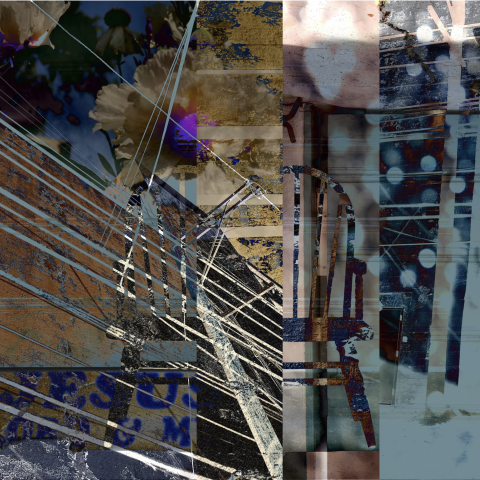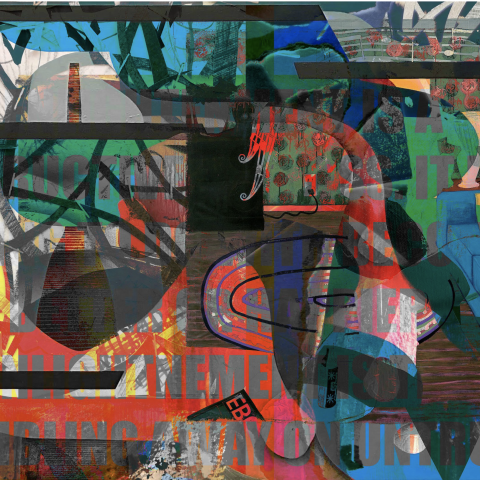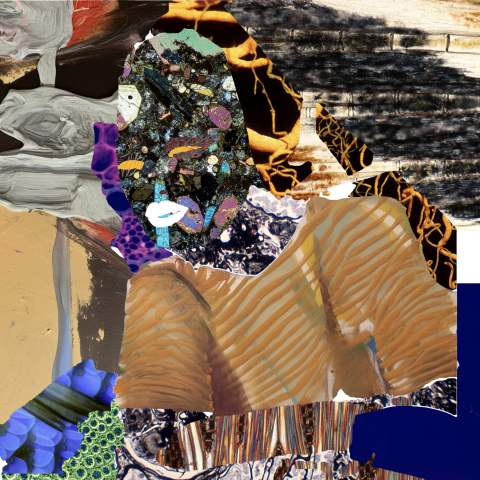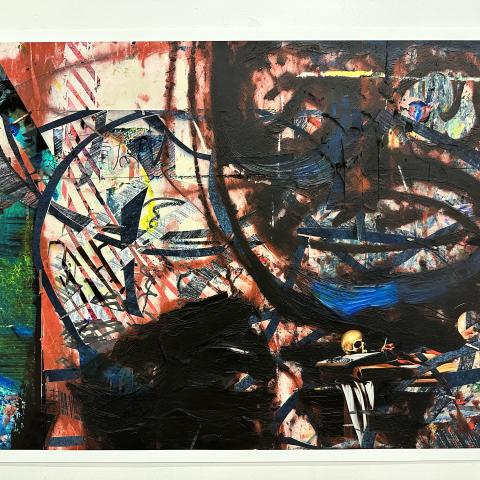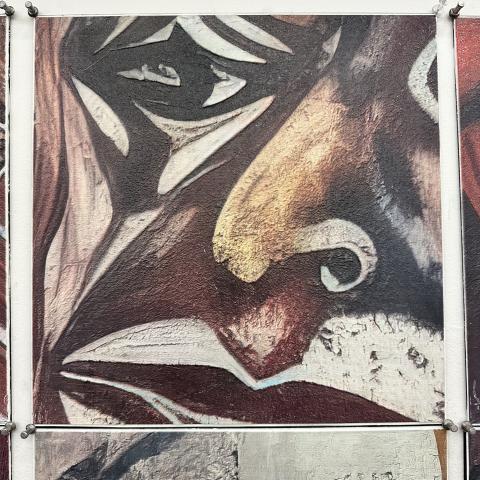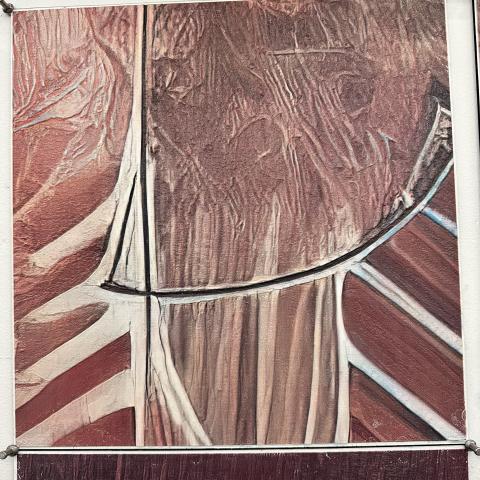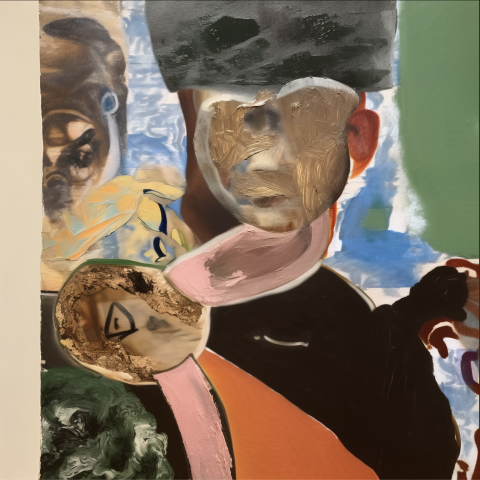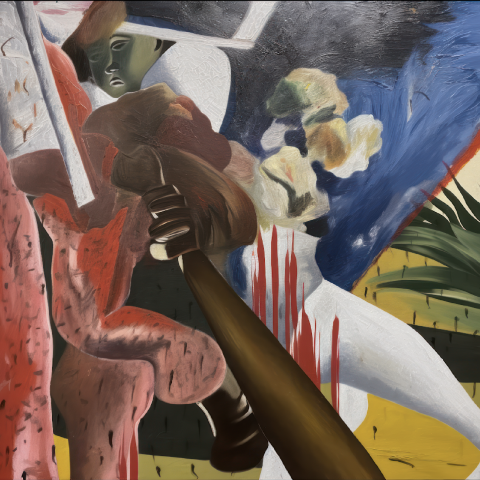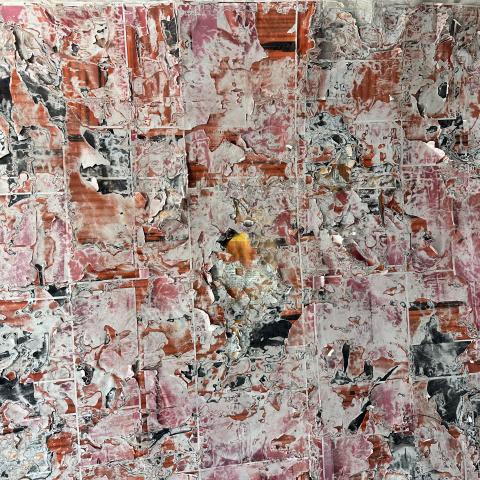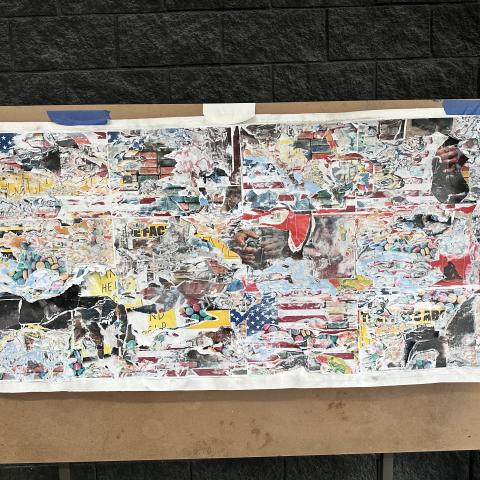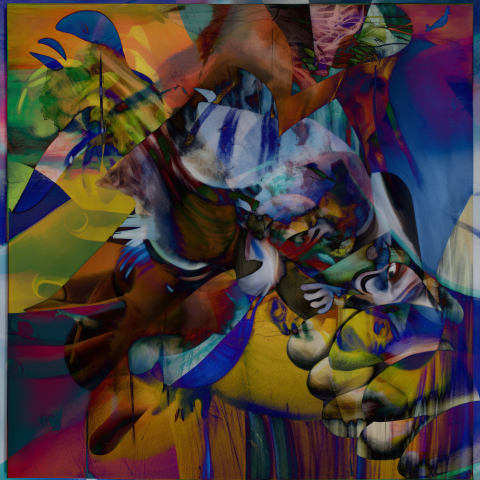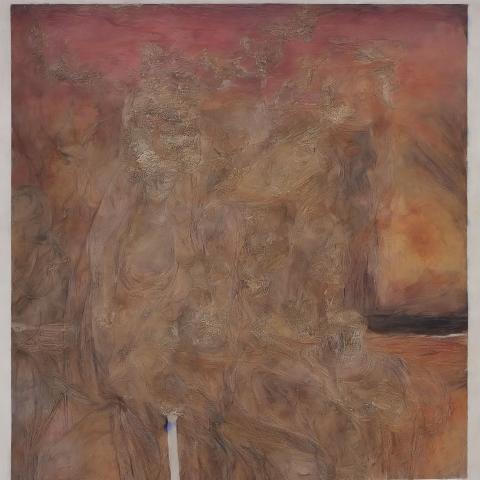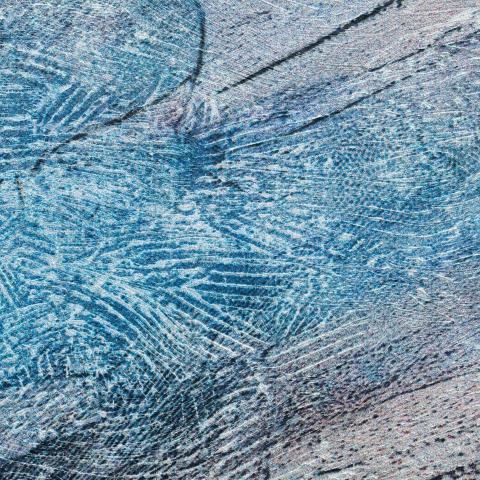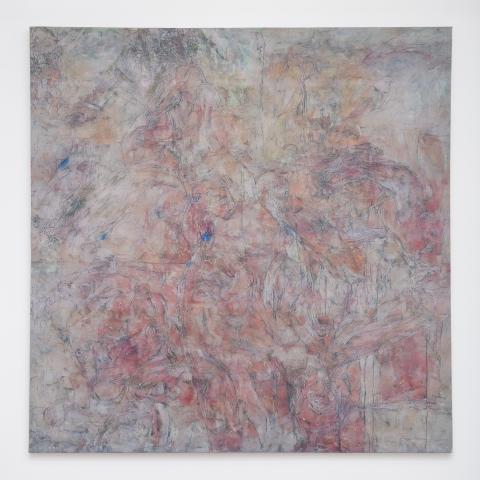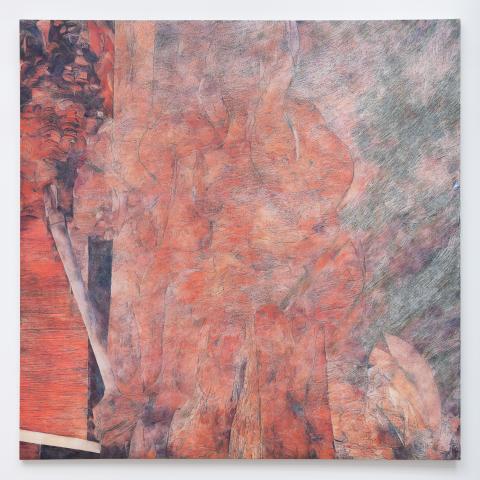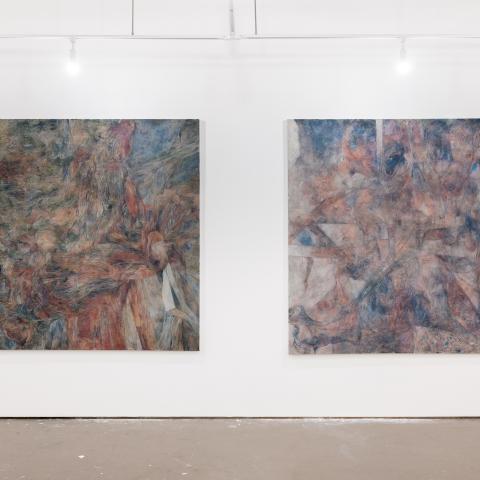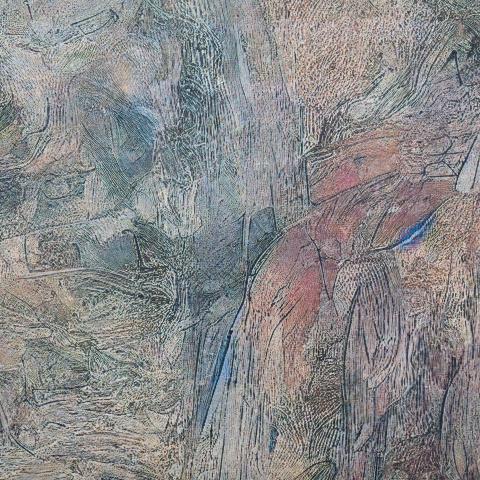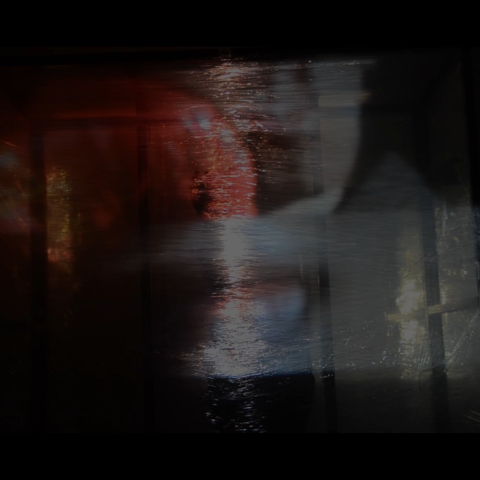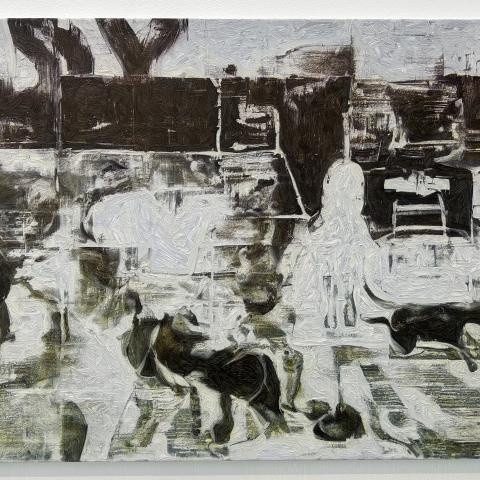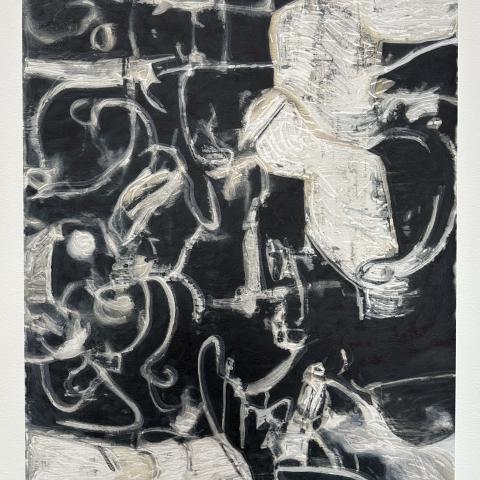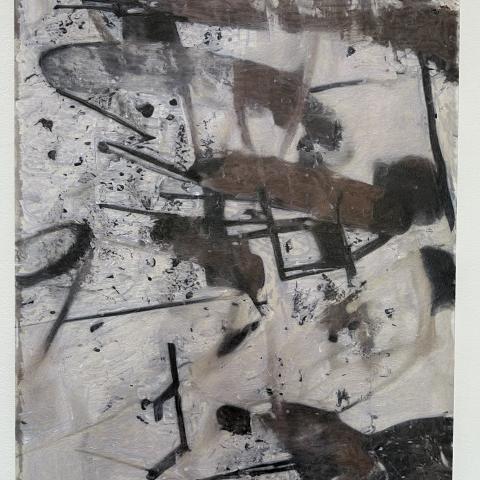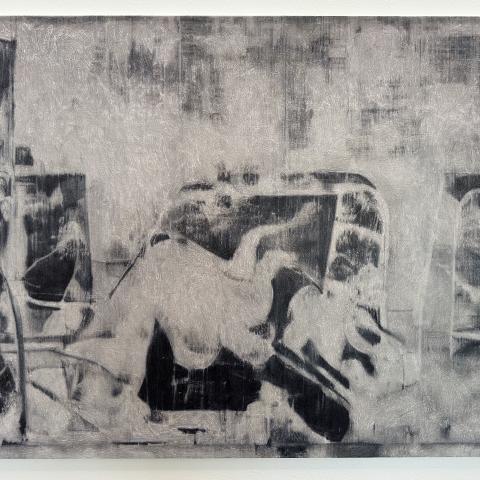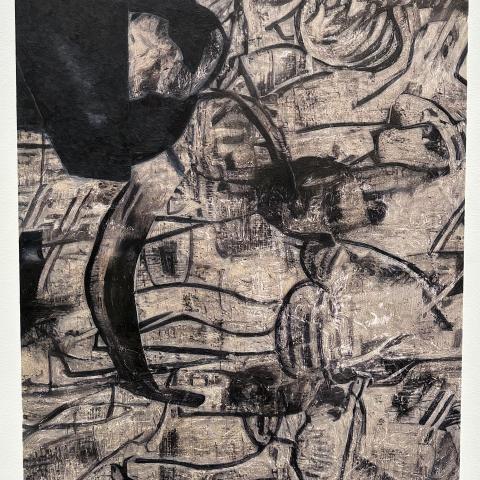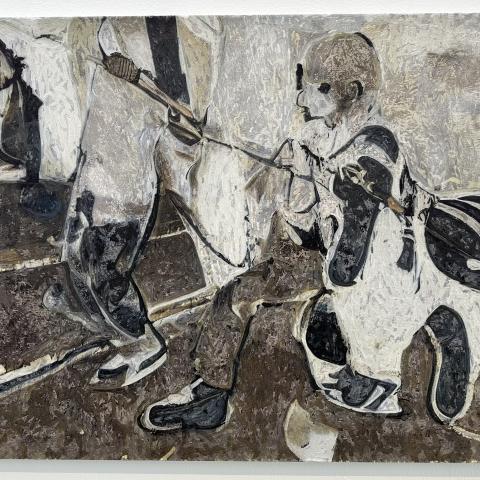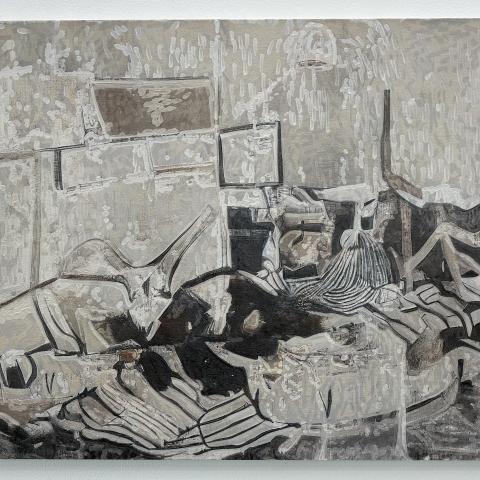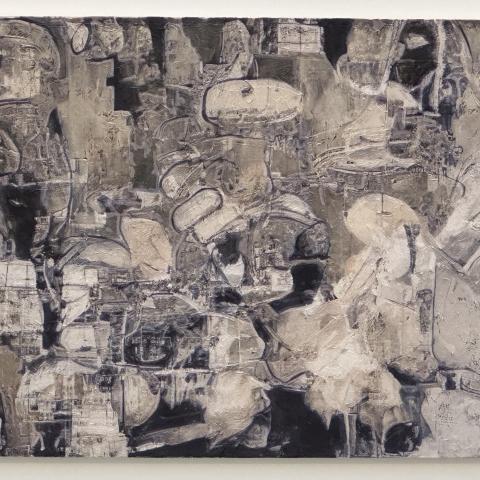
Projects
About
Ryan Benson an interdisciplinary artist, whose research-based practice lies at the intersection of technology and memory. Using a process he calls ”oil rendering”, Benson examines the space between artificial intelligence and artistic expression, questioning the role, and validity, of authorship in the era of machine learning systems.
Benson compiles extensive archives of found and personal photographs that represent a specific time in his life; forgotten through trauma and addiction. He then photographs thousands of brushstrokes individually to create a digital library of the artist’s hand. Both sets of images are brought into an AI learning model which synthesizes them to create what he calls ‘prosthetic memories’; a ‘residual texture’ of himself. These prosthetic memories are rendered onto canvases using traditional oil paint. Benson repurposes an industrial flatbed printer, outfitted to layer the paint in meticulous strokes directly onto canvas. This hacked printing process—combining the library of Benson's hand with algorithmically generated images—recasts the digital memory archive as a physical artifact. Each printed layer compounds his memories into something tangible, holding both the weight and imperfection of his hand while reflecting the insecurities inherent in memory loss and fractured self-identity.
Benson’s work navigates the fractured terrain of memory and trauma through the lens of where technology becomes both a medium and a means of self-investigation. By feeding an archive of photographs and gestures into an AI model, he allows the machine to reinterpret his experiences, creating a dialogue between artist and algorithm. Benson questions how much of the self is retained,restored, or lost in this digital mediation of memory. His layered oil paintings reflect the cyclical nature of trauma, re-living, and re-interpretation, each work bearing the weight of a memory simultaneously lost and remade. Through this process, Benson’s art invites us to reflect on what it means to grapple with trauma in an age where memory can be endlessly reconstituted.

